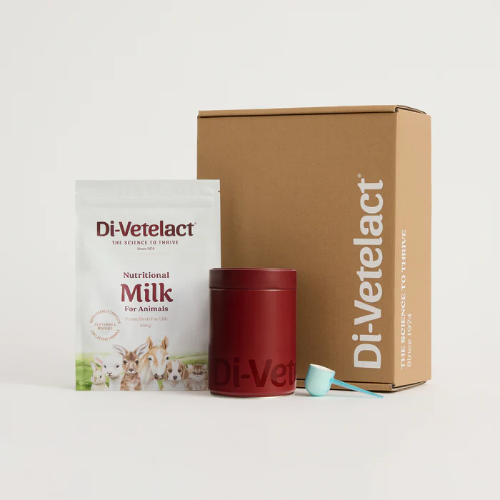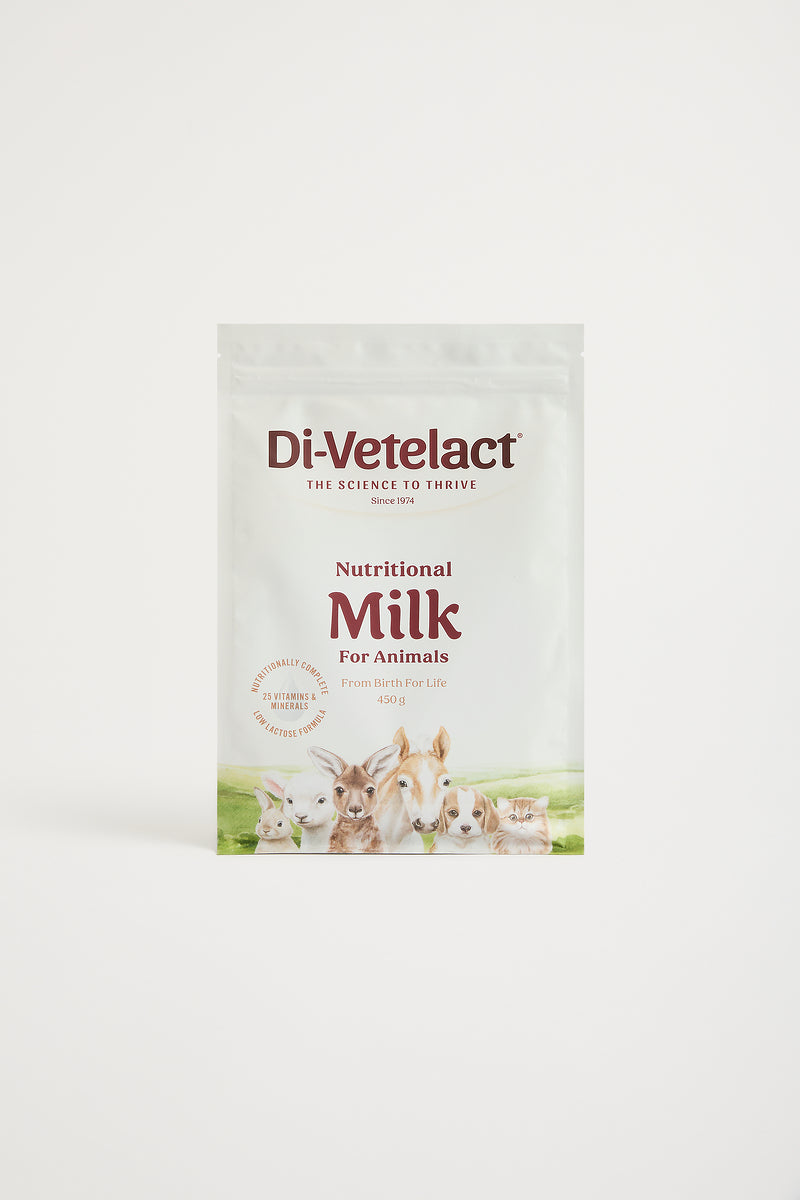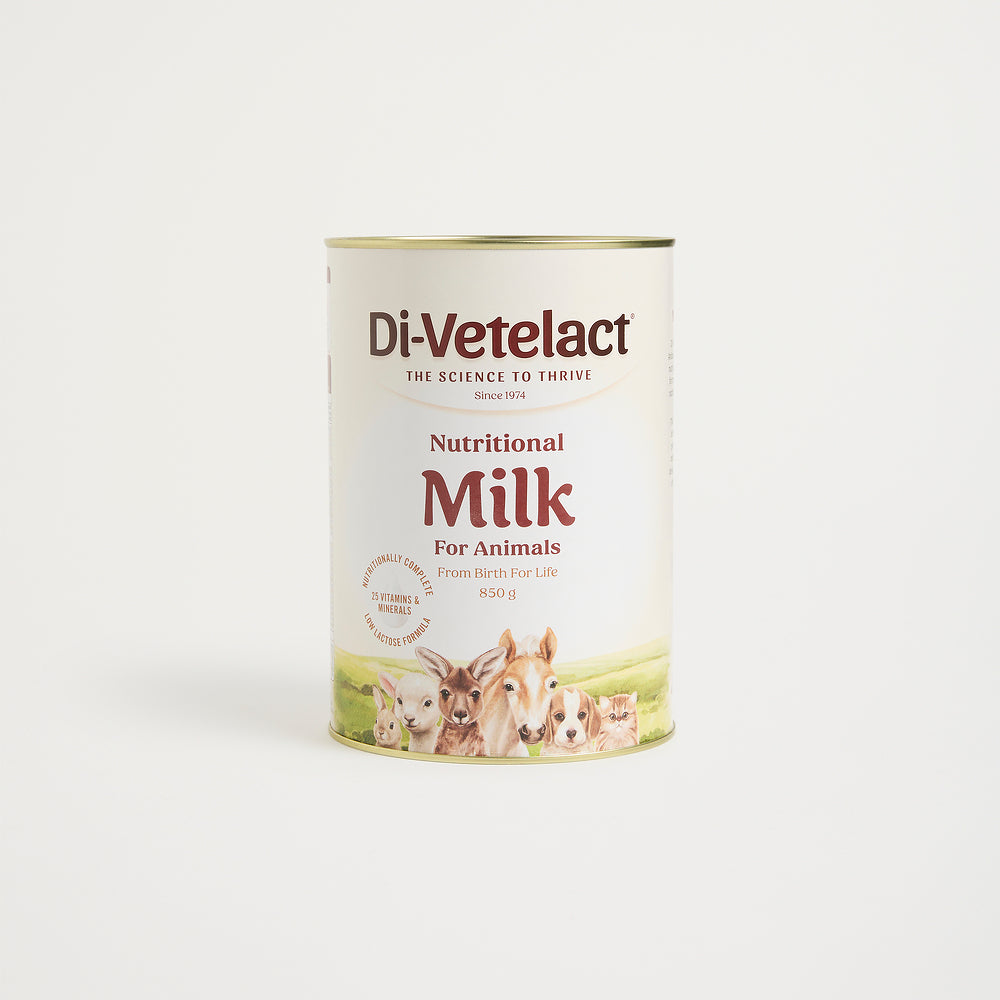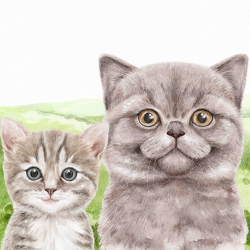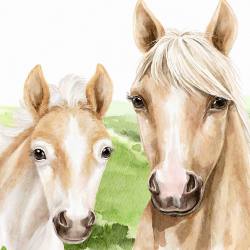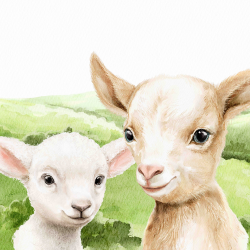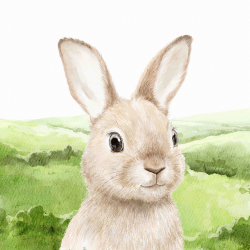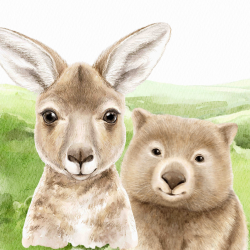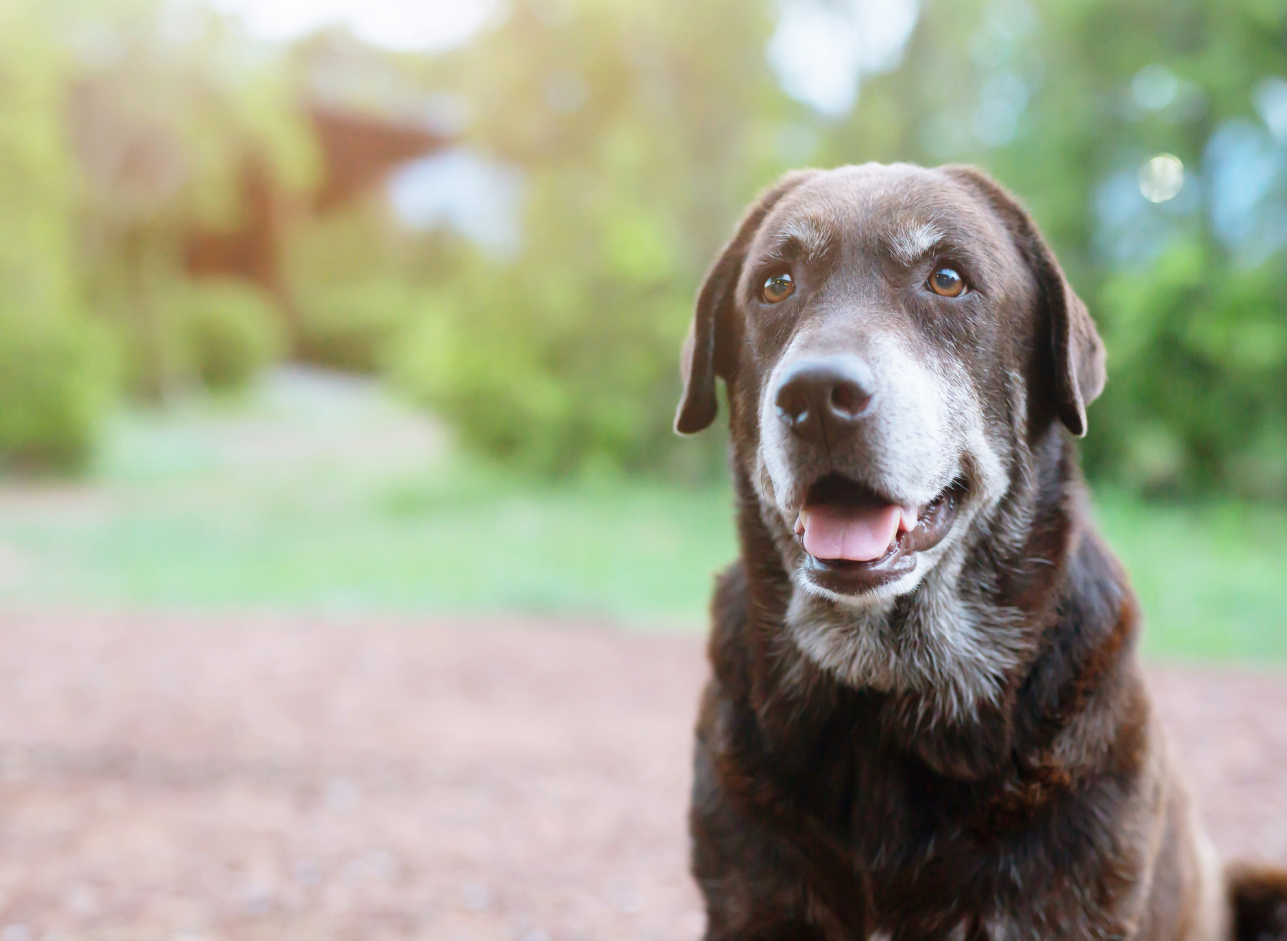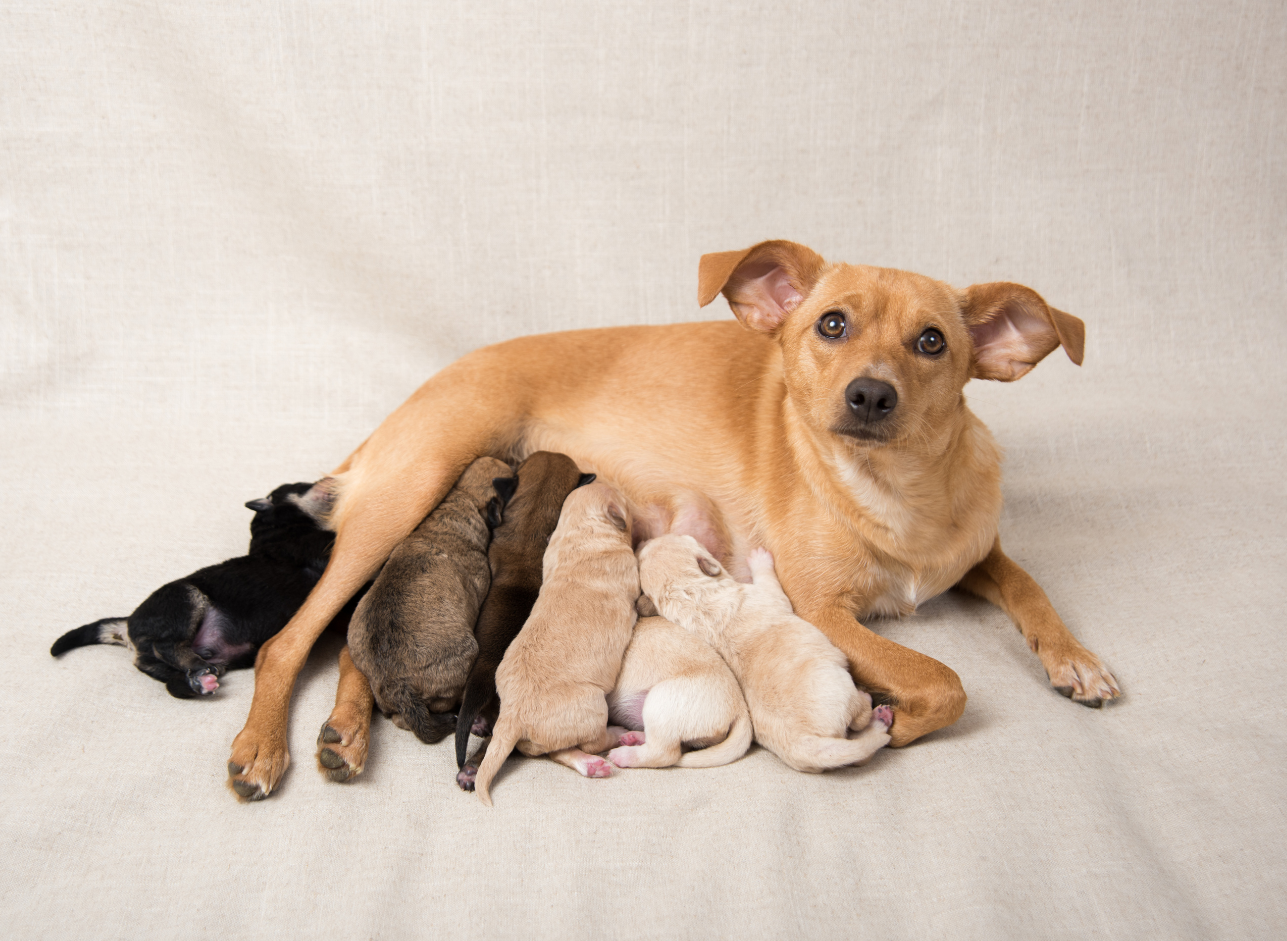Pregnancy and lactation are demanding life stages that place considerable stress on a cat’s nutritional needs. During peak lactation, when milk production is at its highest, the queen requires significantly more energy, protein, and essential nutrients to support both herself and her kittens. That’s where a complete nutritional supplement like Di-Vetelact Nutritional Milk can help meet these heightened demands and ensure the queen stays healthy throughout this critical period.
Di-Vetelact Nutritional Milk is highly digestible and low in lactose and provides a well-tolerated additional source of energy and protein for her diet. The well-balanced mix of all 25 essential vitamins and minerals support the additional nutrient needs of pregnancy and lactation. Plus, the prebiotics in Di-Vetelact can help restore a healthy gut flora which may have been disrupted during the stress of pregnancy and lactation.
Let’s learn more about the nutritional needs for cats during pregnancy and lactation, and how nutrition can play a big part in achieving a successful outcome – a healthy mum and a thriving litter of kittens.
Why is nutrition important for pregnant and lactating cats?
Optimal nutrition is vital for successful breeding of kittens, both for the health of the mother and the outcome of the pregnancy.
Poor nutrition of queens before mating and during pregnancy plays a major role in neonatal kitten mortality, which is estimated to be between 15 and 30 percent. The lack of access to adequate nutrition during pregnancy has been shown to affect the immune systems of both the queen and her kittens.
Malnourishment of the queen can occur as the result of feeding a diet that is poor-quality and imbalanced, or insufficient amounts of good-quality diets. This can cause:
- low conception rates
- birth defects
- problems carrying the entire litter to term
- dystocia (labour difficulties), and
- Improper mammary development, which reduces the quality and amount of the milk and colostrum produced.
Overweight queens, as well as those who are underweight, can experience these problems, as well as being more at risk of difficult or prolonged labour.
A queen should be at an ideal weight before mating to ensure a healthy pregnancy, as losing weight during pregnancy is not advisable.
How does a cat’s nutritional requirements change during gestation and lactation?
Nutritional needs begin to increase as soon as the queen becomes pregnant, so it’s best to change her onto a high energy growth diet just before mating, so there’s no stress associated with a dietary change during the early stages of pregnancy. The queen’s energy requirement increases by about 10% per week of pregnancy, so by the end of the pregnancy her needs are approximately 70% more than her maintenance requirements.
It’s important to monitor her weight gain during the pregnancy – excessive weight gain should be avoided as obesity can contribute to labour difficulties and longer-term health issues.
The energy requirements for a lactating cat are higher than at any other life stage. Sometimes it’s even higher than that during peak kitten growth periods, and up to 3 times maintenance requirements of her standard cat diet. The larger the litter, the greater the nutrient requirements of a queen, as the volume of milk produced is higher.
A queen can produce up to 250ml of milk per day. While peak lactation occurs at 3–4 weeks, her energy needs are highest at 6–7 weeks postpartum. This is because kittens begin eating some of the queen’s food around 3 weeks of age, so their solid food intake must be considered when calculating her nutritional requirements.
How can these increased nutritional needs for the cat be met?
Some queens struggle to eat the amount of food required to meet their increased nutrient needs. This can be due to lack of space in the abdomen and a drop in appetite in late pregnancy. Providing small frequent meals of a premium, high energy / protein complete and balanced growth commercial food will enable most queens to receive adequate nutrition.
The queen’s weight should be monitored during the pregnancy and lactation. Compared to her pre breeding weight, ideally she should be:
- Approximately 40% heavier at delivery
- From this weight gain, she will only lose approximately 40% after kittens have been delivered.
- The remaining 60% of pregnancy weight gain is used during lactation for milk production
Insufficient weight or excessive weight gain during pregnancy should be avoided.
Post birth - monitor her closely.
Most queens lose their appetite approximately 24-48 hours prior to delivery. Within 24 hours of giving birth, her appetite usually returns to normal or greater, and she should resume her intake of a highly palatable, good-quality food as soon as possible.
After delivery, some queens may be reluctant to leave their kittens so food and water should be brought to her if necessary.
In some cases, the sheer volume of food required to meet the demands of lactation may lead to diarrhoea.
Under what circumstances is it appropriate to supplement the queen’s diet?
- If the queen is underweight during pregnancy and/or lactation
- If she develops diarrhoea when eating the high volume of food required to meet her needs
- If her milk production is inadequate to meet the needs of the kittens, whose growth may be sub-optimal.
- If she has been fed a poorly balanced home prepared diet
What type of supplement should be used for a pregnant and lactating cat?
Providing a complete supplement with a balanced source of nutrients such as Di-Vetelact Nutritional milk is recommended.
In nearly all situations, if the queen is unable to meet all her nutrient needs with a premium growth food, she needs an additional source of all nutrients. This should be provided by a complete supplement such as Di-Vetelact Nutritional Milk and not by a single nutrient supplement* i.e. ‘calcium’ or ‘protein’ supplements.
For example:
Calcium given as a single supplement can be dangerous and can actually cause hypocalcaemia (low blood calcium levels) because it down-regulates parathyroid hormone synthesis and secretion, which reduces the mother’s ability to meet demands for calcium mobilisation.
…….
Ensuring pregnant and lactating cats receive optimal nutrition is crucial for their health and the wellbeing of their kittens. By providing a high-quality growth diet and supplementing with a complete, balanced option like Di-Vetelact Nutritional Milk when necessary, you can support your queen through the demanding stages of pregnancy and lactation. Careful attention to her changing needs, from pre-mating through to postnatal care, as this helps set the foundation for a healthy mum and a thriving litter.
*We do not recommend supplementing an already complete and balanced feed with additional single minerals or vitamins unless under the guidance of your vet to correct a diagnosed nutrient deficiency.

